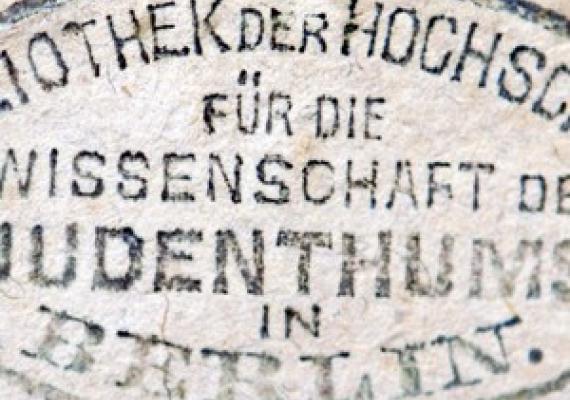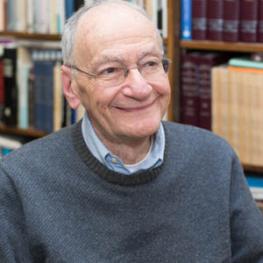A Discourse of Global Significance

I regard this year’s Katz Center seminar devoted to the Science of Judaism (Wissenschaft des Judentums) as preparatory to the commemoration of the upcoming bicentennial of Jewish studies. In 1818 Leopold Zunz launched the turn to Jewish history with a modest essay of bracing scope that spelled out for the first time the all-encompassing nature of postbiblical Jewish literature. Over the next two centuries that epistemological revolution—with its distinct ethos, tools and perspectives—gave rise to ever new sources of knowledge, subfields, and institutional settings, coloring the public discourse of old and new centers of Jewish life. The diverse participants of the seminar reflect that diffusion.
What is most noteworthy for me is the substantial minority of young scholars from Germany whose work merited an invitation. Their presence highlights the current prominence of German scholarship in Jewish studies. Some 1000 books pertaining to Jews and Judaism are now being published every year in Germany. Granted that many are popular and ephemeral, still a goodly number enrich a range of subfields with scholarship of the highest order. There was a time when students of Judaica were required to learn German to read what had been published before 1939. While that is still the case, it is even more important today to master German in order to read what is being written by contemporary German scholars. Indisputably and unexpectedly, over the last few decades Germany has become the third leading center for Jewish studies behind Israel and America. Its scholars have spent lots of time in Israel, acquired a better command of modern Hebrew than many an American colleague and are not stymied by rabbinic and medieval Jewish texts. Back in 1818 Zunz feared there would be few young Jews in 1918 with a sufficient knowledge of Hebrew to handle the sources. My apprehension is that there may be too few Israeli and American students of Judaica with a sufficient command of German to read the best of German Jewish scholarship that goes untranslated.
Wiedergutmachung, the effort to undo the destructiveness of the past, takes many forms in the German Federal Republic. The country has moved well beyond reparations to countless acts of genuine atonement. The decision of a young Christian scholar to undertake the arduous journey to master the requisite knowledge to do Jewish studies, without assurance of an academic job at the end, is often borne of a touch of penance. In retrospect, had academic officialdom before 1933 been more forthcoming to admit Jewish studies into the university curriculum, as repeatedly demanded by Zunz, perhaps the emancipated status of Jews in Germany could not have been so easily reversed and uprooted.
